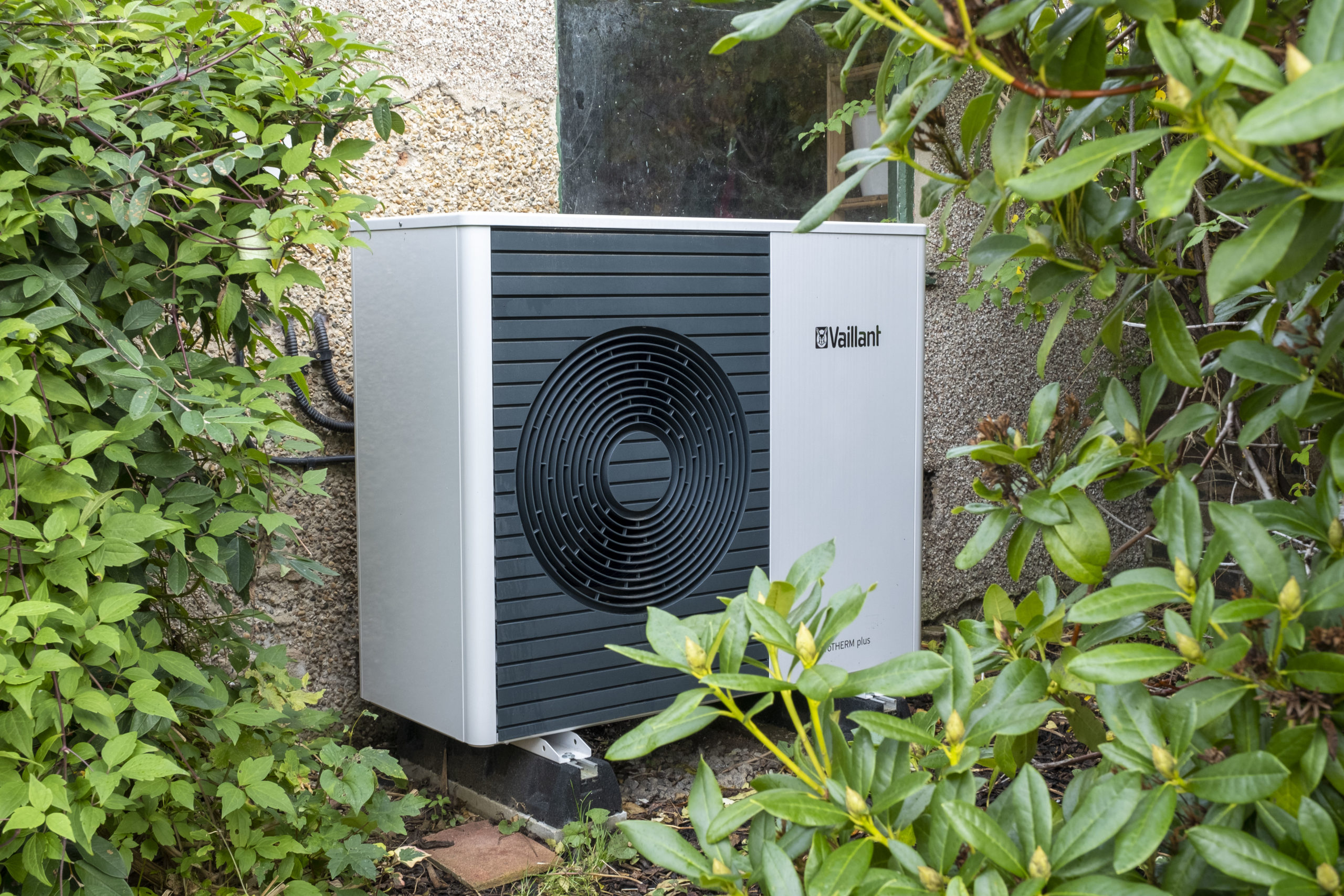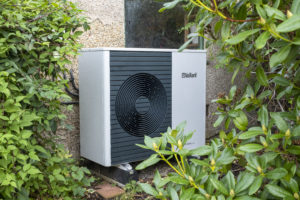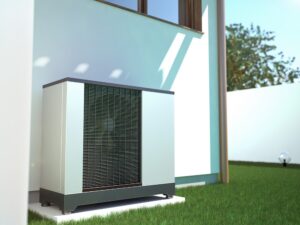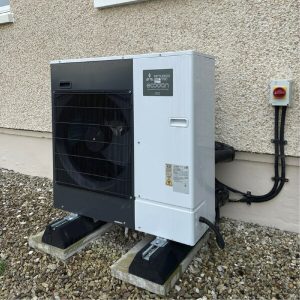Top 5 Air Source Heat Pump myths

At Changeworks, we see air source heat pumps (ASHPs) as the future of home heating. However, a recent survey found that only 22% of homeowners in Scotland would consider installing a heat pump. This low confidence is likely due to a number of persistent air source heat pump myths.
To help you make an informed choice about this type of heating, we’ve taken a look at some of the common arguments against heat pumps.
1) Air source heat pumps don’t work in Scotland
Air source heat pumps extract heat from the air outside, then boost this heat to warm our homes. Since Scottish winters are cold, people worry there won’t be enough heat in the air to properly warm their home.
To bust this myth, we can look at which European countries have the highest heat pump uptake. According to the International Energy Agency (IEA), 60% of Norway’s buildings have a heat pump. In Sweden, the figure is 43%, and in Finland it’s 41%. Each of these countries get colder than Scotland, so our Scottish winters shouldn’t be a problem for a heat pump.
It’s true that a heat pump loses efficiency when it gets very cold. However, an air source heat pump can still effectively heat a home when the temperature drops to -16C.
It’s also true that Nordic homes are generally better insulated than Scottish homes. That’s why we would always recommend insulating your home before installing a heat pump.
2) Air source heat pumps are expensive to install
Air source heat pumps do come with a considerable upfront cost. However, there is help to make heat pumps more affordable. Home Energy Scotland offers up to £7,500 grant funding to homeowners. This increases to £9,000 if you’re eligible for their rural uplift funding.
An air source heat pump is also an investment. As we’ll see in the next section, it can lower your energy bills. If you’re a homeowner, then it’s also an investment in your property. That’s because an air source heat pump can boost your home’s value by £5,000 – £8,000. And, last but not least, by choosing low-carbon heating you’re investing in the planet’s future.
3) Air source heat pumps are expensive to run
In most cases, a heat pump can actually lower your energy costs. However, this depends on the type of heating system you’re replacing. The Energy Saving Trust (EST) have done a deep dive into the running costs of ASHPs compared to other systems. For example, if you’re upgrading from old storage heaters, then you could save around £1,500 a year. On the other hand, if you’re replacing an A-rated gas boiler, then your running costs may increase slightly. This is because heat pumps use electricity alongside renewable energy, and electricity is currently around four times as expensive as gas. The jump in running costs isn’t huge, though. According to EST’s data, the potential increase in electricity bills is £35 per year.
4) Air source heat pumps are difficult to use
A professional, accredited installer will ensure your heat pump is set up to run efficiently. This setup will be based on your household’s needs. You can adjust the settings to achieve maximum efficiency if you wish, but this isn’t necessary for the everyday running of your heat pump.
After it’s been set up, you control a heat pump in much the same way as you would a gas or oil boiler. Like with other kinds of central heating, heat pumps use a programmer and thermostatic radiator valves (TRVs) to set the temperature and timing of your heating.
5) Air source heat pumps are noisy
Heat pumps are only noisy if they’ve been installed incorrectly. A properly installed air source heat pump should make less noise than a household fridge.
There are laws on noise levels which ensure a heat pump won’t bother you or your neighbours. The installer will check that the noise at the midpoint between your heat pump unit and your neighbour’s home is less than 42 decibels. For reference, a fridge’s volume is around 50 decibels.
Beyond air source heat pump myths
If you’d like to find out more about air source heat pumps, then why not visit our dedicated Air Source Heat Pump page? There, you can find out how heat pumps work, as well as what to consider before installing one. We’ve also included information on grants for air source heat pumps.
Air source heat pumps are one of the measures offered by our retrofit service, EcoCosi. If you’re interested in upgrading the energy efficiency of your home, then you can register your interest in our EcoCosi service here.
You can also read case studies from householders who have installed a heat pump below.
Is this page useful?



